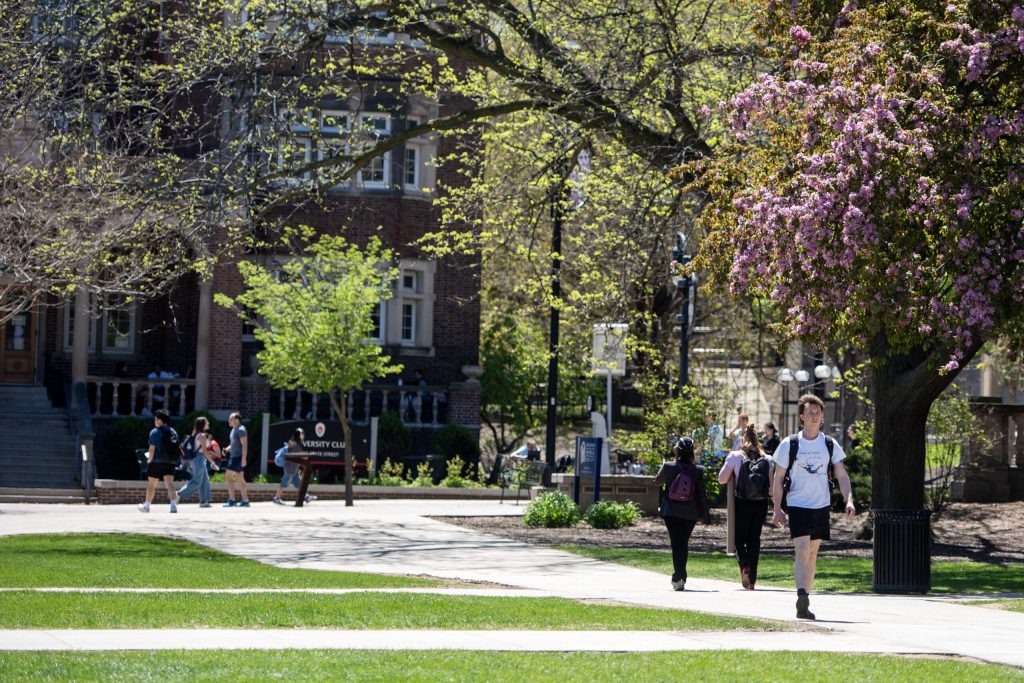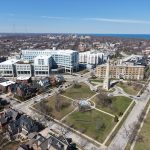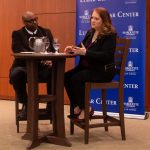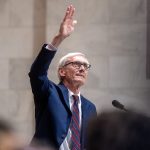Federal Grant Funding Wisconsin Foreign Languages for 60 Years Cut
Congress had approved funding. Thousands of state students will be affected.
The federal grant program that has helped fund foreign language education and programming at the University of Wisconsin-Madison and across the country for more than 60 years has been canceled by the Trump administration.
After months of waiting, students and educators at UW-Madison learned last week that the Department of Education fellowships through the Foreign Language and Area Studies Program and grants that supported what are known as National Resource Centers were canceled.
More than 50 students at UW-Madison and UW-Milwaukee were receiving fellowship dollars ranging from about $15,000 to $38,000 a year.
Wisconsin also has eight National Resource Centers that work with school libraries, community colleges and tribal colleges. Funding for those has also been cut.
“This certainly has a lot of implications for our students and for our state,” said Frances Vavrus, dean of the International Division of UW-Madison.
According to a letter sent by the Department of Education on Sept. 10 to UW-Madison, continuation of the foreign language program requires “a determination from the Secretary that continuation of the project is in the best interest of the Federal Government.”
The money for the program was budgeted for by Congress, but the Department of Education had the flexibility to allocate grant funds.
“Based upon the Department’s judgment that the purpose of and functions of the international and foreign language education grant programs are not a priority of the Administration, the Department exercised its authority to reprogram the funds to grant programs that are a priority for the Administration,” wrote Chris McCaghren, acting assistant secretary.
The office responsible for administering the grants — International and Foreign Language Education — was dissolved and its entire staff laid off in March by the Department of Education.
But Vavrus is hoping a letter sent on Sept. 16 by UW-Madison will cause McCaghren to reconsider.
“The ramifications of this decision are far and wide,” Vavrus said this week during an interview with WPR.
Vavrus’s letter points out that for the last 60 years, the work being done at UW-Madison through programs funded by Title VI of the Higher Education Act has contributed to more than $8 million in language and area studies for students at the university and in K-14 schools across Wisconsin.
“It would be a significant loss of this investment to terminate these programs before the end of the grant cycle, as it would mean the end of critical language and area studies for hundreds of university students and thousands of elementary, high school, and community college students throughout the state,” Vavrus wrote.
It also means students aren’t able to attend college this semester without the funding and people working at the National Resource Centers could lose their jobs, although Vavrus said that has not yet been determined.
Elliott Brandsma is a UW-Madison Ph.D. student who was awarded a fellowship through the Foreign Language and Area Studies Program.
Brandsma was a Fulbright Scholar to Iceland through the U.S. Department of State for the 2013-14 academic year. He is now studying trends and features of literary modernism of the Nordic region.
He planned to finish his Ph.D. in Finland this year and teach. But the $20,000 he had been receiving for an academic year is gone, so he’ll have to wrap up his dissertation in the next few months.
Brandsma said he’s one of the luckier students, because his education is nearly complete.
Undergraduate students haven’t even gotten to start.
“I’m worried that America is becoming more provincial in its mentality,” Brandsma said. “These are life-changing experiences, and then you go home and you have these skills to bring back to your students. I worry that our education model is going to become so myopic that it’s really not serving anybody.”
Federal grant that funded Wisconsin foreign language for more than 60 years cut was originally published by Wisconsin Public Radio.
If you think stories like this are important, become a member of Urban Milwaukee and help support real, independent journalism. Plus you get some cool added benefits.






















